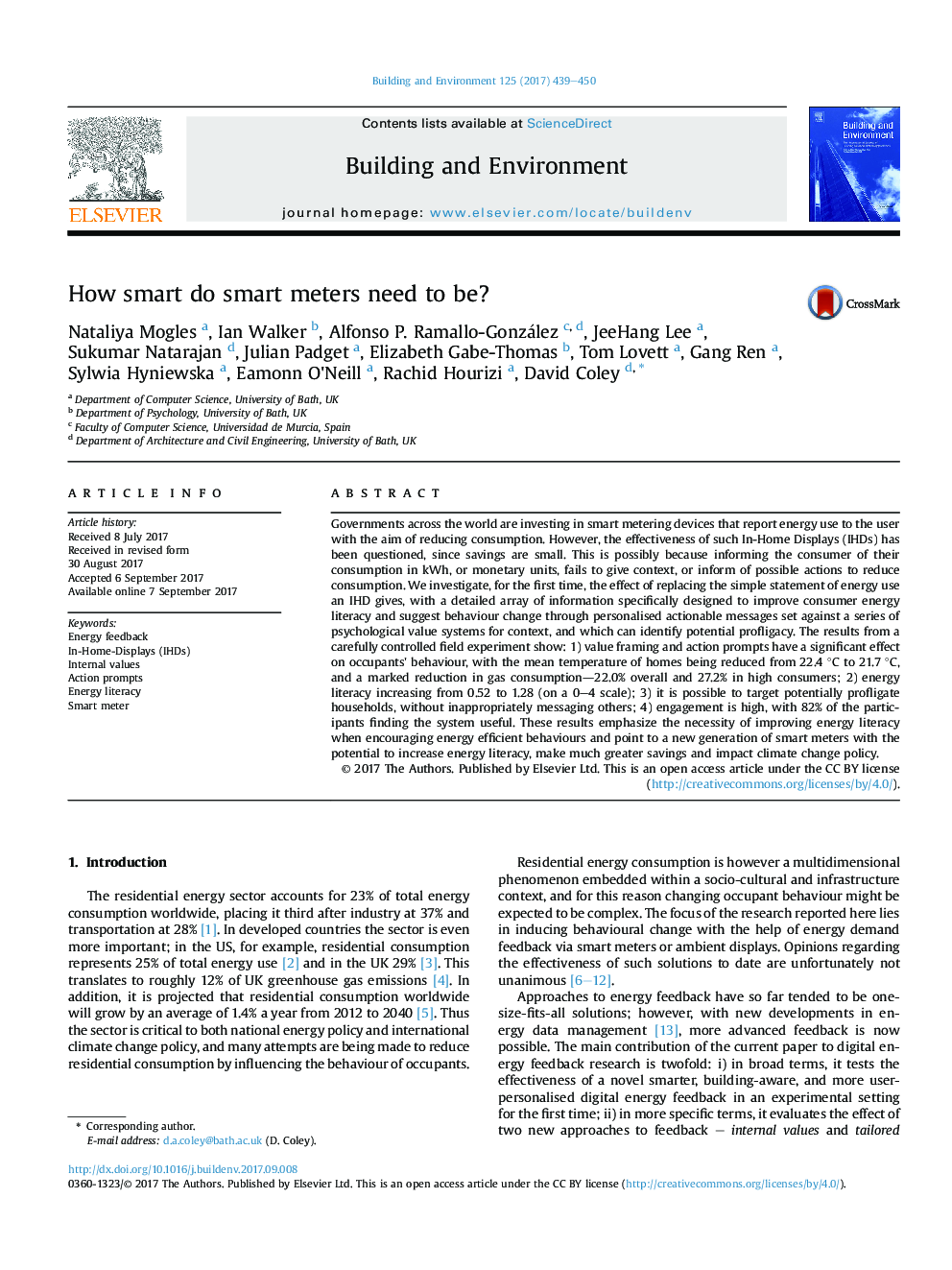| Article ID | Journal | Published Year | Pages | File Type |
|---|---|---|---|---|
| 6479242 | Building and Environment | 2017 | 12 Pages |
â¢We investigate whether feedback designed to improve consumer energy literacy is better than a standard smart meter.â¢Results from a controlled field trial show a marked reduction in gas consumption: 22.0% overall and 27.2% in high consumers.â¢Energy literacy increased from 0.52 to 1.28 (on a 0-4 scale).â¢Engagement is high, with 82% of the participants finding the system useful.
Governments across the world are investing in smart metering devices that report energy use to the user with the aim of reducing consumption. However, the effectiveness of such In-Home Displays (IHDs) has been questioned, since savings are small. This is possibly because informing the consumer of their consumption in kWh, or monetary units, fails to give context, or inform of possible actions to reduce consumption. We investigate, for the first time, the effect of replacing the simple statement of energy use an IHD gives, with a detailed array of information specifically designed to improve consumer energy literacy and suggest behaviour change through personalised actionable messages set against a series of psychological value systems for context, and which can identify potential profligacy. The results from a carefully controlled field experiment show: 1) value framing and action prompts have a significant effect on occupants' behaviour, with the mean temperature of homes being reduced from 22.4 °C to 21.7 °C, and a marked reduction in gas consumption-22.0% overall and 27.2% in high consumers; 2) energy literacy increasing from 0.52 to 1.28 (on a 0-4 scale); 3) it is possible to target potentially profligate households, without inappropriately messaging others; 4) engagement is high, with 82% of the participants finding the system useful. These results emphasize the necessity of improving energy literacy when encouraging energy efficient behaviours and point to a new generation of smart meters with the potential to increase energy literacy, make much greater savings and impact climate change policy.
Graphical abstractDownload high-res image (219KB)Download full-size image
